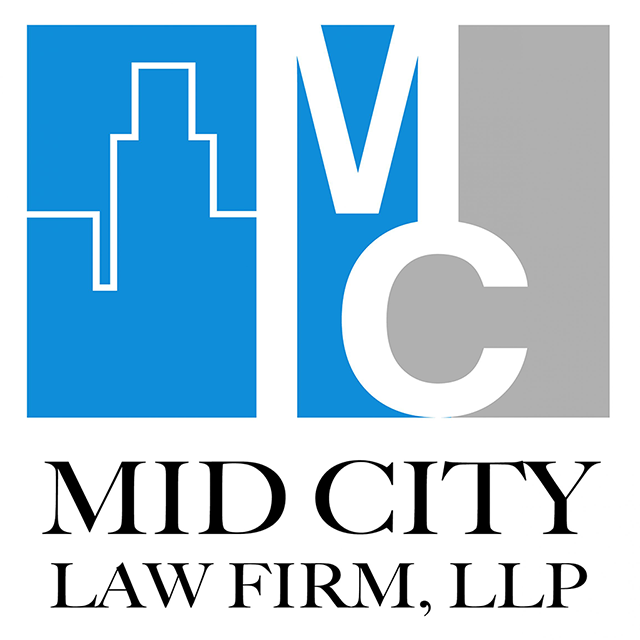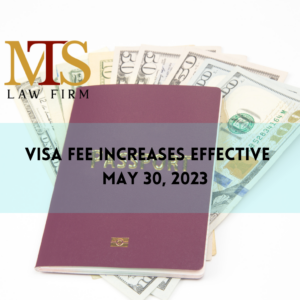Table of Contents
Adjustment of Status/Extension of Stay
A foreign individual, after being admitted to and while staying in the United States on a nonimmigrant status, may be required by business, personal or other reasons to remain in the United States beyond his or her current authorized stay. Depending on the circumstances, the individual may extend his or her stay in the same nonimmigrant classification or change his or her status to another nonimmigrant classification.
The term “extension of stay” is defined as the process of extending the length of time a visa holder is authorized to stay in the United States, when approved by USCIS. While basically seeking the same purpose of prolonging authorized stay in the United States, “change of status” differs from “extension of stay” in that the former entails changing from one nonimmigrant visa to another nonimmigrant visa while in the United States.
Adjustment of status is the process that an individual can use to apply for lawful permanent resident status (Green Card) when he is present in the United States. Adjustment of Status allows an individual to complete visa processing and get a Green Card without having to return to his home country.
Extension of Stay
The procedure and requirements for extension of stay/change of status vary depending on the nonimmigrant category. The application must be filed with USCIS on the appropriate USCIS form. In general, the application must be filed before the applicant’s authorized status expires, which is the date on the Form I-94, Arrival-Departure Record.
If the nonimmigrant is holding B visitor visa and wishes to extend his or her stay as a visitor, he or she must use Form I-539, Application to Extend/Change Nonimmigrant Status. The application must be supported by documentation justifying the additional period of stay requested. Documents to establish continuing intent to stay only for a temporary period of time, strong ties to the home country, and financial support must also be submitted.
If the nonimmigrant visa holder wishes to change status to another nonimmigrant status, the application must be filed on Form I-539 if the new nonimmigrant category sought is any of the following: A, F, G, I, J, M, and N. If the nonimmigrant is seeking to work in the United States in a temporary employment under E, H, L, O, P, Q, R, and TN classification, the application must be filed on Form I-129, Petition for Nonimmigrant Worker. The Form I-129 petition is filed by the U.S. employer, but the nonimmigrant beneficiary may also do the change of status application in the same form even if only the petitioner is signing the form.
To extend authorized stay under any nonimmigrant category, the same form used to apply for the previous extension or change of status must be used.
Authorized Stay vs Authorized Status
Authorized stay is the period of time a nonimmigrant is allowed to remain in the United States. Beyond that period, a nonimmigrant begins to accrue unlawful presence if he or she remains in the United States without authorization. In general, “authorized stay” refers to the date stamped on the nonimmigrant’s Form I-94, which is the date by which the nonimmigrant must leave the United States. Because the Form I-94 also determines the status of the nonimmigrant, the date indicated on the Form I-94 also refers to the period of authorized status of the nonimmigrant.
Where the nonimmigrant has filed a timely (i.e., before the Form I-94 expired) application for extension of stay or change of status, the period during which the application is pending continues the nonimmigrant’s authorized stay in the United States. However, it does not extend the alien’s period of authorized status.
The distinction is important for at least two reasons relevant to this discussion. First, the nonimmigrant does not accrue unlawful presence after the date on his or her Form I-94 has expired if the period of stay beyond such date is authorized. As discussed above, the period of stay beyond the Form I-94 expiration date is authorized stay if the nonimmigrant has filed a timely application for change of status or extension of stay. The nonimmigrant will accrue unlawful presence if the application for change of status or extension of stay is denied by USCIS beginning the date after the denial is issued.
It is also important to remember that for purposes of applying for extension of stay or change of status, an application is considered timely if it is filed with USCIS on or before the period of authorized status expires as indicated on the Form I-94. An application filed after the Form I-94 validity date, even if filed during a period of authorized stay, does not make the application timely. Thus, where a nonimmigrant files a timely request for extension of stay and subsequently applies for a change of status while the previous application is pending but after the expiration of his or her Form I-94, he or she is no longer eligible for the requested change of status. If the first application is denied, the subsequent application filed beyond the period of authorized status will not stop the accrual of unlawful presence.
Authorized Stay vs Visa Validity
The distinction between authorized stay and visa validity is also a common source of confusion. People sometimes think that they cannot remain in the United States beyond the validity date of their visa stamp on their passport even if they have been given authorized stay beyond that period. The period from the visa issuance date to the expiration date as shown on the visa stamp is the visa validity period. It is the length of time the visa can be used for travel to the U.S. and seek admission at a U.S. port-of- entry for an authorized purpose. As long as the visa is valid, even if the remaining validity period is less than six months, the visa holder may request permission to enter the United States.
Once admitted to the United States, the visa validity has no bearing on the authorized stay granted to the visa holder. A nonimmigrant can stay in the United States for the duration of his or her authorized stay, even if the visa validity has already expired.
Persons Not Eligible for Extension of Stay and/or Change of Status
Persons admitted in any of the following nonimmigrant categories are not eligible to apply for extension of stay or change of status and must depart the United States before the expiration of their Form I-94:
• C (Alien in Transit)
• D (Crewman)
• K-1 or K-2 (Fiance(e) or Dependent of Fiance(e))
• S (Witness or Informant)
• TWOV (Transit without Visa)
• WT or WB (Entry under the Visa Waiver Program)
The following categories are subject to certain restrictions concerning their ability to request for change of status:
• J-1 (Exchange Visitor) subject to the 2-year foreign residence requirement, unless a prior waiver is obtained
• M-1 (Vocational Student) cannot change status to F-1 or any H classification if the vocational training helped him or her qualify for the H classification
Departure While the Application is Pending
It has been USCIS’ long-standing policy that an applicant’s departure from the United States after an application for extension of stay or change of status has been filed is considered an abandonment of the application. As a result, the application will be denied by USCIS.
If the application is made in a Form I-129 petition filed on behalf of the applicant, USCIS may grant the petition but deny the accompanying application for extension of stay or change of status, requiring the applicant to apply for a visa abroad. In any case, an applicant whose application is denied based on abandonment may still be able to obtain a visa through consular processing.
Steps for Adjustment of Status
Under U.S. immigration laws, there are a variety of ways for individuals to apply for a Green Card. The eligibility requirements for adjustment of status may vary depending on the immigrant category you are applying under.
Thus, the first step in the adjustment of status process is to determine if you fit into a specific immigrant category.
- Determine if you are eligible to apply for a green card
- You or someone else must file a petition for you (if applicable)
- Check visa availability (if applicable)
- File Form I-485
- Go to your application support center appointment
- Go to your interview (if applicable)
- Respond to request for additional evidence (if applicable)
- Check your case status
- Receive a decision
Green Gard Eligibility Categories
Prior to filing an application for Green Card, an individual must be eligible under any one of the categories below. Check if any of the categories will fit in your situation
- Green Card through family. You may be eligible to apply either as (1) immediate relative of a US citizen; (2) other relative of a US citizen or relative of a lawful permanent resident under the family-based preference categories; (3) fiance(e) of a U.S. citizen or the fiance(e)'s child; (4) widow(er) of a US citizen; (5) VAWA self-petitioner-victim of battery or extreme cruelty
- Green Card through employment. You maybe eligible to apply either as (1) immigrant worker; (2) Physician National Interest Waiver; (3) Immigrant Investor
- Green Card as Special Immigrant. You maybe eligible to apply either as (1) Religiou worker; (2) Special Immigrant Juvenile; (3) Afghanistan or Iraq national; (4) International broadcaster; (5) Employee of an international organization or family member or NATO-6 employee or family member
- Green Card through refugee or asylee status. You may be eligible to apply either as (1) asylee; or (2) refugee
- Green Card for human trafficking and crime victims. You maybe eligible to apply either as (1) human trafficking victim; or (2) crime victime
- Green Card for victims of abuse. You maybe eligible to apply either as (1) VAWA self petitioner -victim of battery or extreme cruelty; (2) Special Immigrant Juvenile (3) An abused (victim of battery or extreme cruelty) spouse or child under the Cuban Adjustment Act; (4) An abused (victim of battery or extreme cruelty) spouse or child under Haitian Refugee Immigrant Fairness Act (HRIFA)
- Green Card through other categories. You maybe eligible to apply either as (1) Liberian Refugee Immigration Fairness (LRIF); (2) Diversity Immigrant Visa Program; (3) Cuban Adjustment Act; (4) An abused (victim of battery or extreme cruelty) spouse or child under the Cuban Adjustment Act; (5) Dependent status under the HRIFA; (6) An abused (victim of battery or extreme cruelty) spouse or child under HRIFA; (7) Lautenberg parolee ; (8) Indochinese Parole Adjustment Act of 2000; (9) American Indian born in Canada; (10) Person born in the United States to a foreign diplomat (11) Section 13 (diplomat)
- Green Card through registry
Concurrent Filing of Form I-485
Most immigrant categories require you to have an approved immigrant petition before filing a Form I-485. However, some categories may allow you to file your Form I-485 at the same time that the immigrant petition is filed or while the immigrant petition is pending
Concurrent filing of Form I-485 is when an adjustment of status application (Form I-485) is filed prior to the approval of the underlying immigrant visa petition.
To be considered concurrently filed, the immigrant visa petition and the adjustment of status application (Form I-485) are filed at the same time and mailed together with all the required filing fees and supporting documentation to the same filing location.
Seeking lawful permanent resident status in the United States through Adjustment of Status? MTS Law specializes in representing individuals in the process, including filing Form I-485. Trust our experienced immigration lawyers for expert guidance and meticulous preparation, ensuring your application is accurate and timely. Our dedicated team understands the significance of obtaining lawful permanent resident status, and we are committed to advocating for your rights and maximizing the chances of a successful outcome.
Disclaimer
The information presented in this section provides a general overview of the naturalization process in the United States. For accurate and up-to-date information tailored to your individual case, we recommend seeking professional assistance from MTS Law. With over 10 years of experience, our team has successfully guided clients through various aspects of immigration law, ensuring the best possible outcomes for their clients. Contact MTS Law today for comprehensive and reliable immigration legal services.
Recognized as the 'Attorney of Celebrities' since 2010
Having been known in the Filipino community for representing well known promoters, and artists, MTS Law has earned the recognition of being the “attorney of celebrities.” For over 13 years, it has been serving its clients with persistence and determination, always ready to take on tough and challenging cases to help Filipino families realize their American dream.
YELP REVIEWS
[wpyelp_usetemplate tid="1"]
Are you pleased with the service we provided? Kindly consider leaving a Yelp Review to help inform others about your experience
Latest News And Updates

Mid City Law Firm for Personal Injury Cases
May 23, 2023
Respectfully announcing the establishment of our new law firm – the Mid City Law Firm. The Mid City Firm is established as a result of

State Department Plans To Launch Program for Domestic Visa Renewal
May 15, 2023
The State Department seeks to launch a pilot program later this year offering visa renewal options in the US for H-1B specialty occupation workers and

Visa Fee Increases Effective May 30, 2023
May 15, 2023
Effective May 30, 2023, the U.S. Department of State will increase certain nonimmigrant visa (NIV) application processing fees globally. The application fee for visitor visas
SCHEDULE A FREE CONSULTATION
Tell us how we can help you
Phone: + 1 (213) 232-3154 (818) 731-2205 Fax: (213) 380-9300
Email: info@mtsangalaw.com
oFFICE ADDRESS: 3600 Wilshire Blvd. Suite 920 Los Angeles, California 90010

